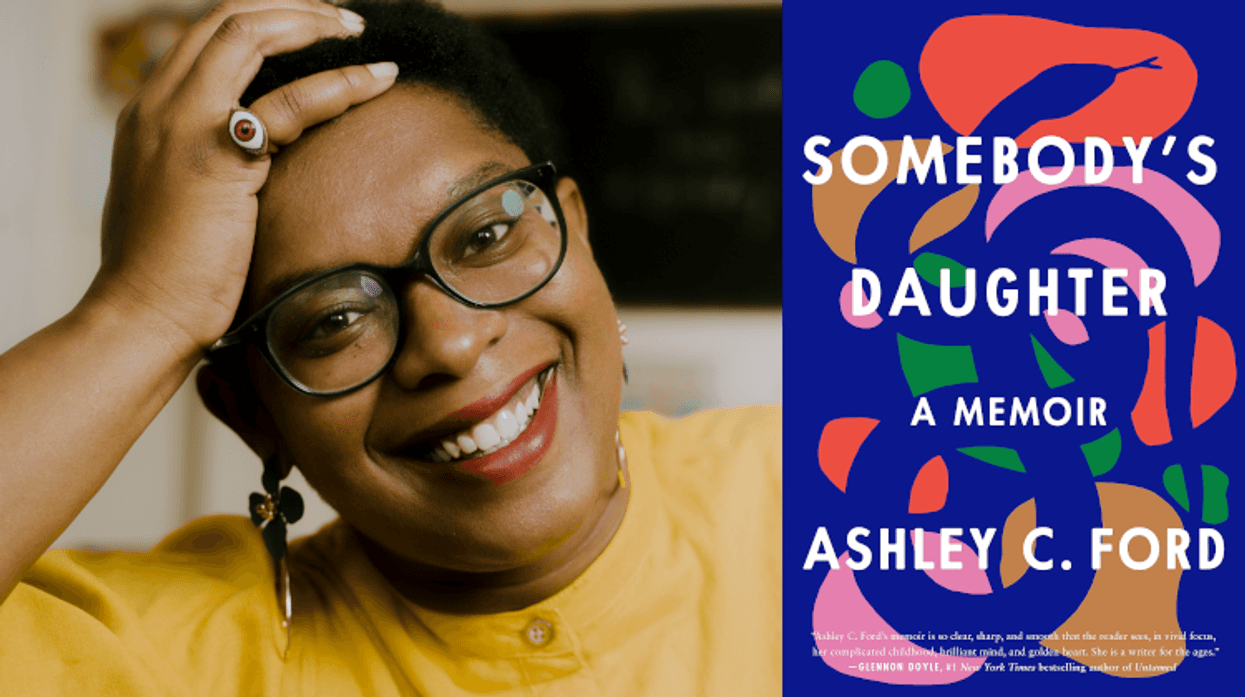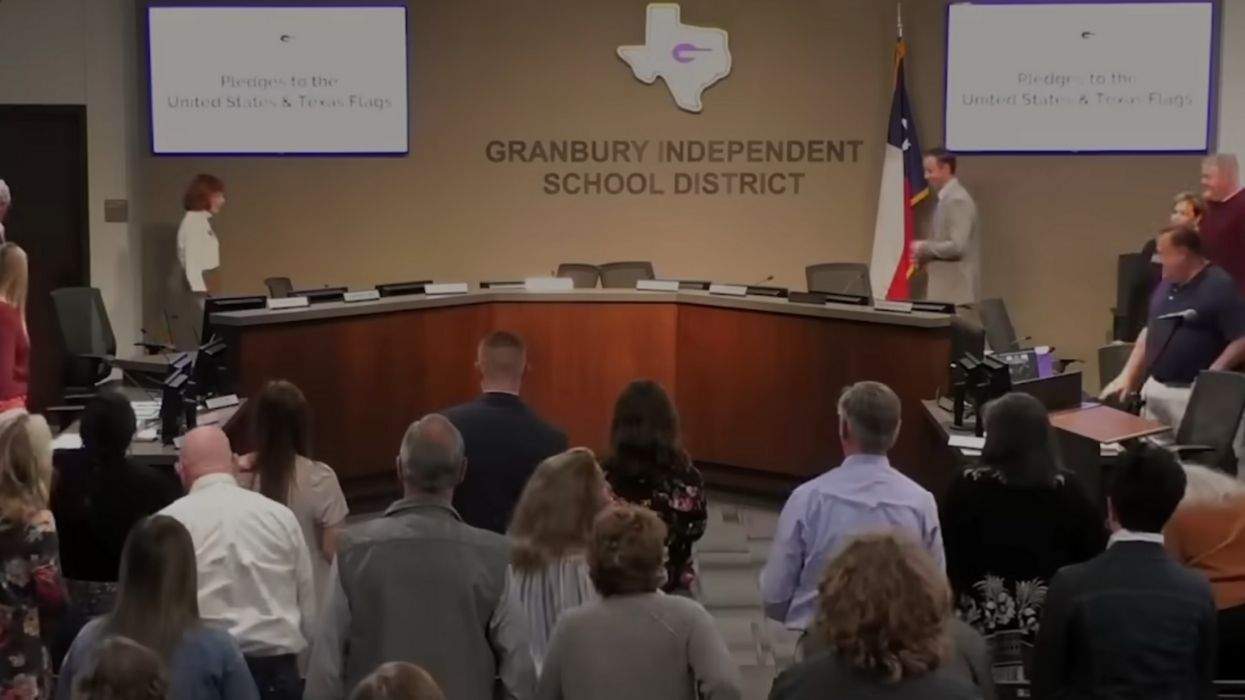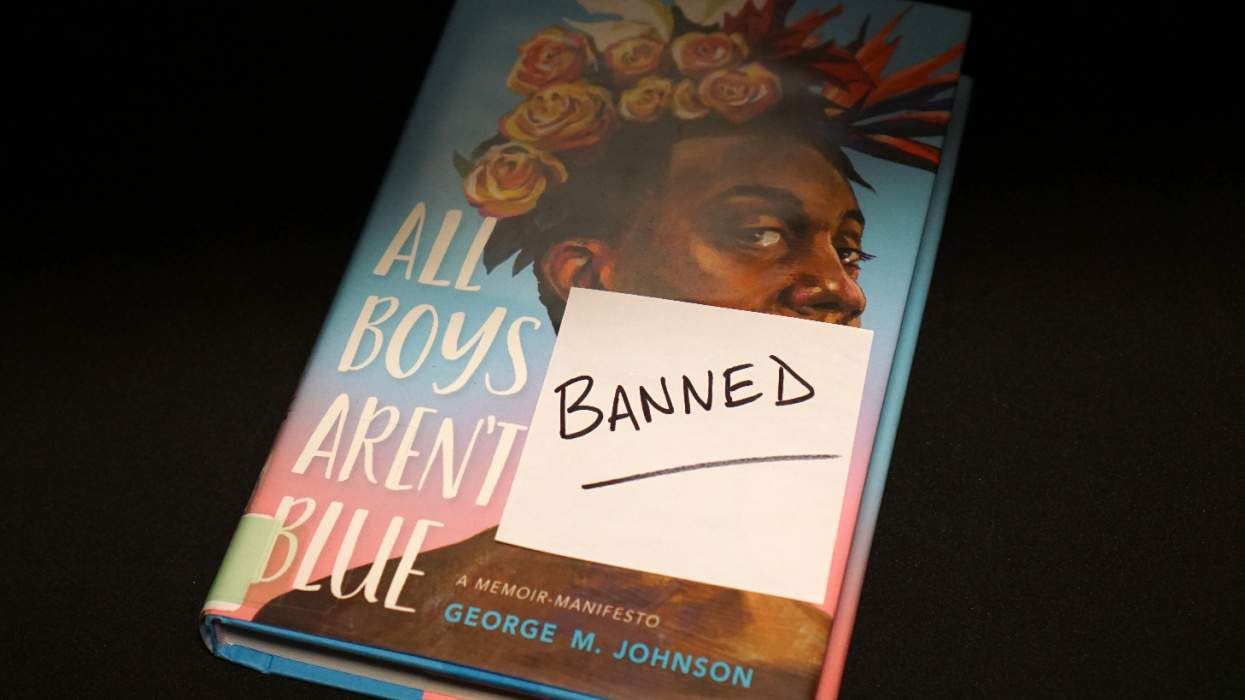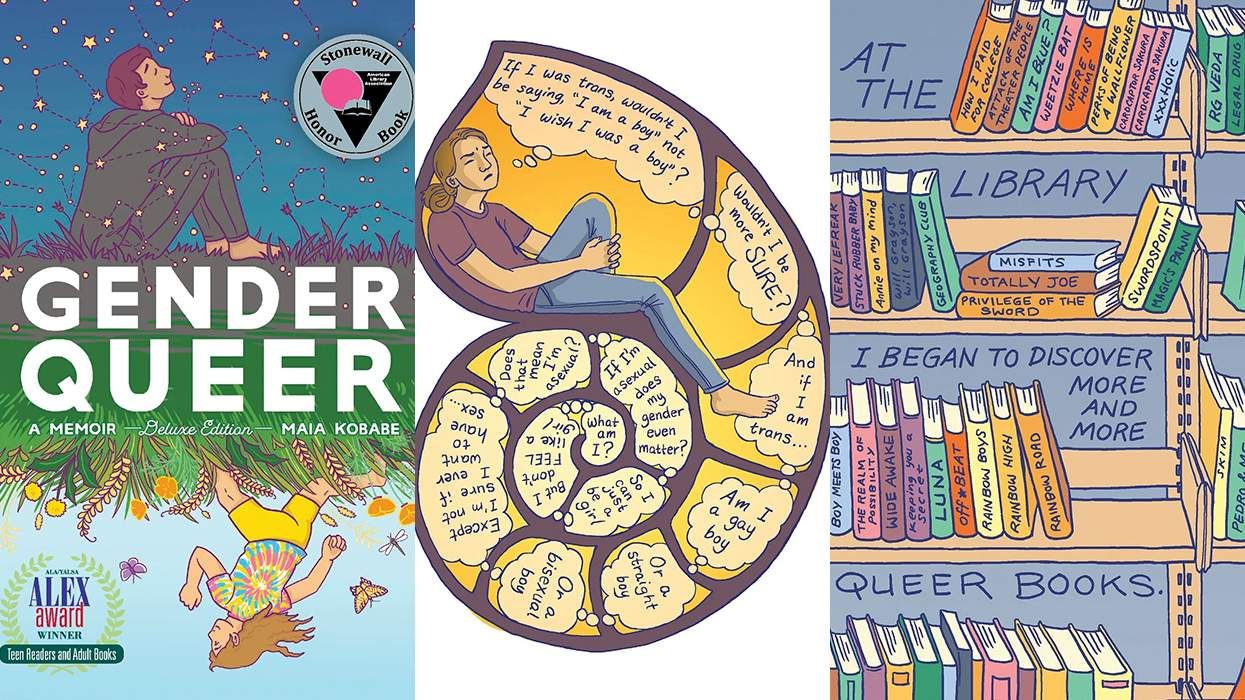"Somebody can be really loving and a fantastic support to you. And also be somebody else's worst nightmare, be somebody else's monster, the thing that comes out of the dark," writer Ashley C. Ford says. "I have to accept that my father is both of those things."
In her new memoir, Somebody's Daughter (out now), Ford depicts an intricate love story between a father and daughter. Ashley's father went to prison two weeks before he turned 21 and remained incarcerated for the next 30 years. "I didn't get to grow up with the myth that you can love someone and they won't do terrible things if you love them."
Ford writes about their relationship; one overflowing with both love and pain, with a clarity and grace readers will be hard-pressed to find anywhere else.
To celebrate the release of Somebody's Daughter, Ashley C. Ford spoke with the LGBTQ&A podcast. You can read an excerpt below and listen to the full interview on Apple Podcasts or Spotify.
Jeffrey Masters: You experienced sexual violence as a teenager and write about discovering that your father was incarcerated after being convicted of the same crime. Did you ever wonder if that knowledge would be too much for you, wonder if you wouldn't be able to have a relationship with him knowing that?
Ashley C. Ford: Yeah, absolutely. It's difficult because when I found out why my father was in prison, there was no regular communication with my father. There was no like, "Oh, now we're not talking to each other." We already weren't talking to each other. We didn't have a way to talk to each other.
There was a part of me that thought what happened to me happened because of what my father had done. There was a part of me that thought this is me paying for his sins, this is me paying for his crimes, and that I paid for them with my body.
I think I thought that and believed that because you search for reason, you search for reason as a 14-year-old. And you don't know why this happened to you, you don't know why your father made the choices that he did, and you start to come up with your own answers because it's not really safe to talk about with the adults who are around you. It is so much easier to believe that either there's some force out there that is putting these things on you or that this was in somebody's control.
JM: When it comes to restorative justice and building this relationship with your father, that harm repair looks different for everybody. Was this a conversation you had with him?
ACF: Well one of the things that I talk about a lot when I talk about sexual assault is the fact that somebody can be really loving and a fantastic support to you and be somebody else's worst nightmare, be somebody else's monster, the thing that comes out of the dark. I have to accept that my father is both of those things.
I have to love him as he is, and that is a choice that I make. I could absolutely say, "I don't want anything to do with a biological parent who did something like this."
JM: I think most people would assume that that would be the easiest choice.
ACF: I think that those people most likely can't fathom the reality. We think that the people who we love and who love us and who treat us well don't have the capacity to do evil. And that's not true for anybody. Everybody has the capacity to do evil. It's just that some of us don't do it.
I think about my father's life, I think about the fact that he went to prison two weeks before he turned 21, I think about the fact that in 30 years of incarceration my father attempted to connect and maintain a connection with his children, which is very hard. The system makes that so hard. And I think about what I want to be perfectly honest. I never got the chance to have a relationship with my dad.
The relationship I have with my dad is for me, I do love him and I want him to be happy and I want him to be okay, but this is for me. I know why I show up for him.
JM: Now that he's out, how is the reality of your father comparing to the fantasy of him?
ACF: It's interesting because the fantasy of my father has never really been able to be a whole fantasy or real fantasy. It's never been able to be like, "Oh, I have no idea who he is, so he could be anybody."There've always been some constraints on the fantasy about my dad and who he is and what he is. But getting to know him now has been really lovely.
It's strange how alike we are, it's strange how much he sounds and looks and moves like my brother. Until he got out of prison, he was in prison for my brother's entire life because my mom found out she was pregnant with my brother after my dad was in jail, after he had been arrested.
So getting to know him now has been wild. Everything is new in this relationship, everything is a reconfiguration, everything is moving from fantasy into reality, the reality being much better than the fantasy.
Somebody's Daughter by Ashley C. Ford is out now.
Listen to the full podcast interview on Apple Podcasts or Spotify.
LGBTQ&A is The Advocate's weekly interview podcast hosted by Jeffrey Masters. Past guests include Pete Buttigieg, Laverne Cox, Niecy Nash, and Roxane Gay. Episodes are released every Tuesday.















